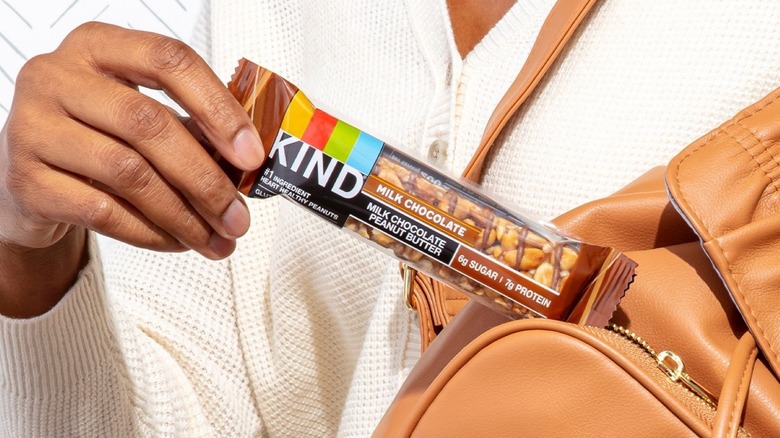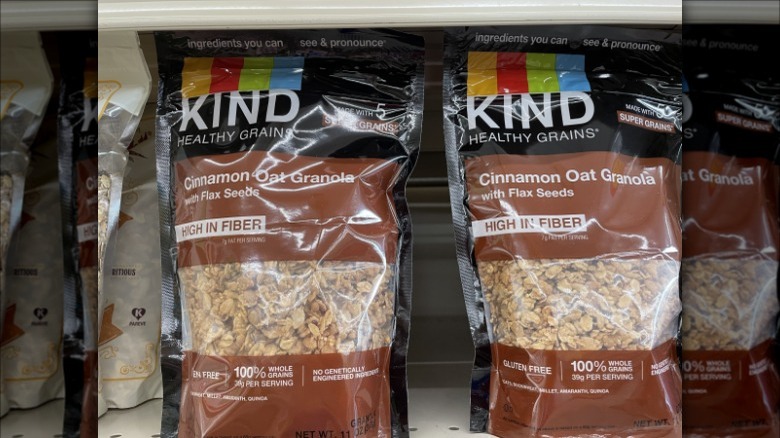Lawsuit Claims KIND Granola Isn't Really A High-Fiber Item
The new year of 2023 brings an unkind legal challenge to the makers of KIND granola products. A class action lawsuit filed in the final two days of 2022 claims that KIND LLC, a company that hangs its hat on the concept of healthy eating, is marketing its granola products as high-fiber items when they, in fact, fail to meet consumer laws regarding the claimed percentage of fiber content. Top Class Actions explained that granola consumer and now plaintiff Aimen Halim is accusing KIND of violating both state and federal laws, according to a New York federal court filing. Consumers eligible to join the lawsuit include residents of New York, Illinois, Mississippi, Arkansas, Alaska, South Dakota, South Carolina, Idaho, Iowa, Wyoming, and Utah.
This new lawsuit comes on the heels of separate legal action in which KIND answered accusations of mislabeling its snack bars as "All Natural" or "Non GMO," according to Bloomberg Law. The multi-state class action suit in that case, filed in 2015, alleged that certain bars contained either GMOs or synthetic ingredients. Though the label was discontinued in 2017, the lawsuit lingered, finally ending in a company win after a federal court ruling in September 2022. It concluded that plaintiffs had failed to establish a clear definition of "all natural" and presented no proof that reasonable consumers would be deceived by the packaging.
Just three months after the "all natural" suit dismissal, KIND finds itself in legal turmoil once again.
Percentage of daily nutrition
"Daily recommended intake" (DRI) is used by government agencies, including the U.S. Department of Agriculture, to determine what percentage of a daily dietary requirement is met by a specific product, explains SFGate. In the case of KIND granola products, the new Halim v. Kind LLC class action lawsuit, the question is whether the label "high in fiber" is deceptive. ClassAction.org explains that to qualify as high-fiber, a product should contain 20% of the daily recommended amount.
For KIND granola, the 20% requirement is only met in a "bowl-size" 65-gram serving, which typically applies when granola is eaten as a cereal. However, according to the complaint, the company markets the granola as a snack rather than a cereal. As evidence, it points to the product's placement in stores, alleging that the granola is with snacks rather than in cereal aisles. In the plaintiff's view, the labeling deceptively implies that the smaller 30-gram (⅓ cup) portion is high in fiber. Though small print on the front of the package cites the 65-gram serving, the lawsuit claims it's "difficult to read."
The list of alleged offenses includes violating "state consumer laws, fraud, breach of warranty, and unjust enrichment," according to Top Class Actions. Interestingly, in 2015, KIND received an FDA warning over health claims related to its snack bars. Among other issues, the agency said that their fat content prevented them from qualifying as a "good source of fiber" (via CBS News).

